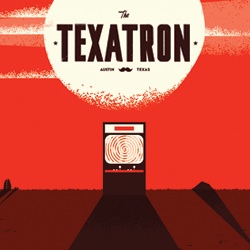MIT’S JENKINS, DRZAIC, RAUCH ON MORALITY & PHILOSOPHY IN ZELDA
MIT’s (and soon to be USC‘s) Henry Jenkins has posted a new interview with former students Peter Rauch and Kristina Drzaic (who I’m sure I’ve seen commenting around Offworld a time or two) on their contributions to the recently released pop culture/philosophy collection ‘The Legend of Zelda and Philosophy: I Link Therefore I Am‘ (!).
Approaching the subject from two backgrounds (Drzaic’s from her thesis on secrets and glitches in games, and Rauch on morality in games), the two have created a mashup chapter called “Slave Morality and Master Swords,” and, while I haven’t seen the piece itself, I did enjoy this quote from Drzaic (along with the post as a whole):
Peter and I both agree that the game series of Zelda is not, narratively speaking, a morass of intriguing philosophical questions. Every Zelda game has the same plot and In the Zelda world morality is fully black and white, good and evil. While replaying the same plot might sound boring, it isn’t. Each game looks different, feels different, and behaves differently. Players keep coming back because the play itself is the attraction.]
The act of play is where the philosophical questions become interesting. As you work your way through the game world you can subvert the seriousness, the story, and the philosophy itself through your play. In this way, Zelda is a good case study for how philosophical questions can function within a videogame; our book explores the experience of the player vs. the reality of the game…
Defying the laws of a game is an illicit pleasure. In the case of [a glitch in Ocarina letting players fly] meant being able to explore the space in a new way and see incomplete construction and the game world’s edge. The experience of flying in Zelda was like gaining access to the Disneyland Magic Kingdom underbelly or peeking behind the stage of a play. In flying through the air and playing with glitches you get to see things that are not meant for your eyes. It destroys the fiction but it also gives you, as a player, great freedom and mastery over the space.
Head over to Jenkins’ Confessions of an Aca/Fan blog for the full interview.
Getting Philosophical about Legend of Zelda: An Interview with Kristina Drzaic and Peter Rauch [Confessions of an Aca/Fan]
See more posts about: Offworld Originals






